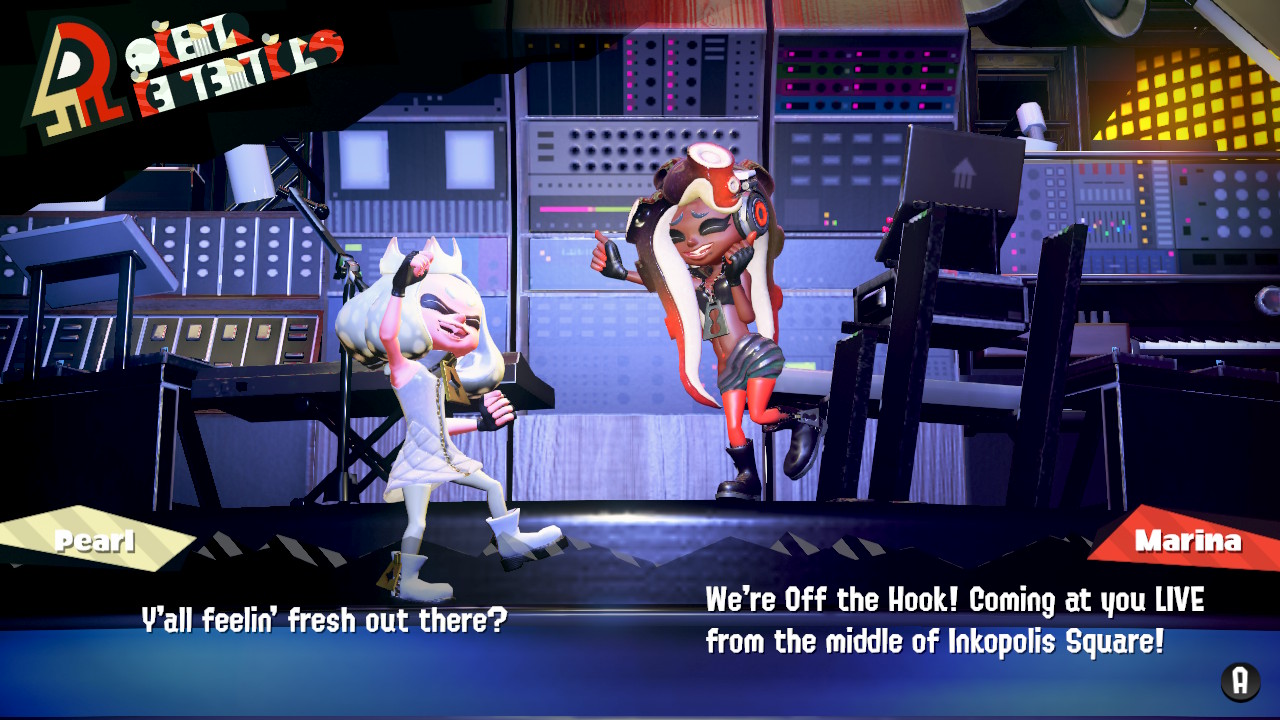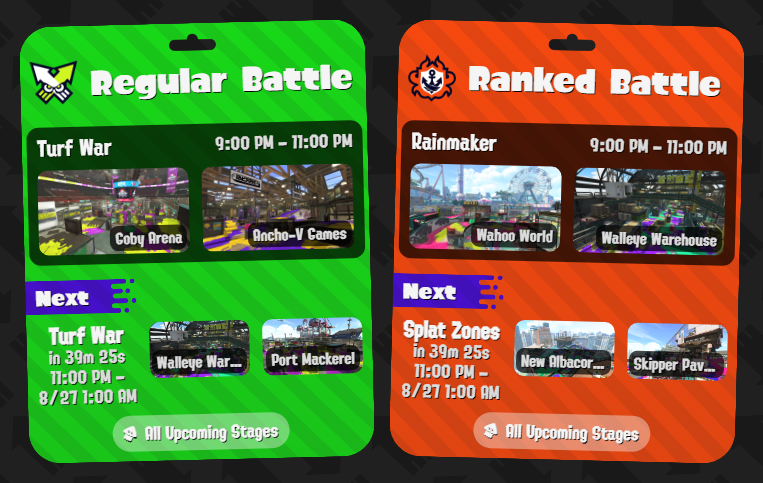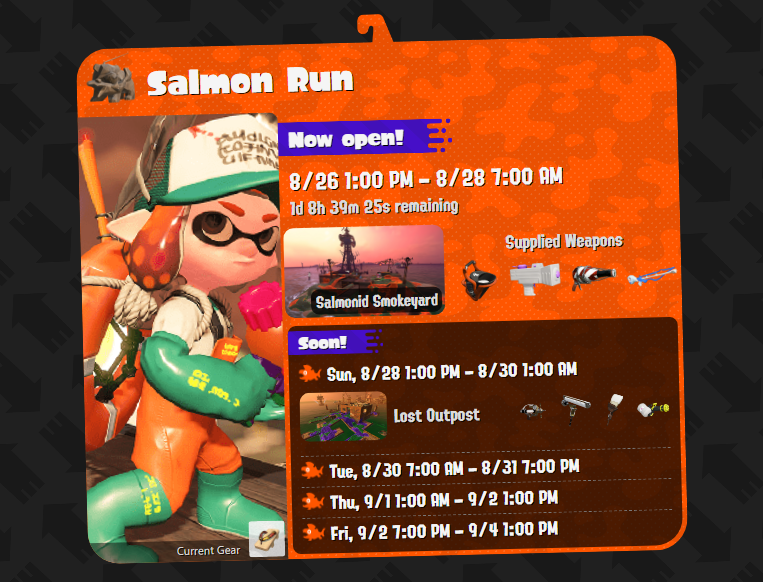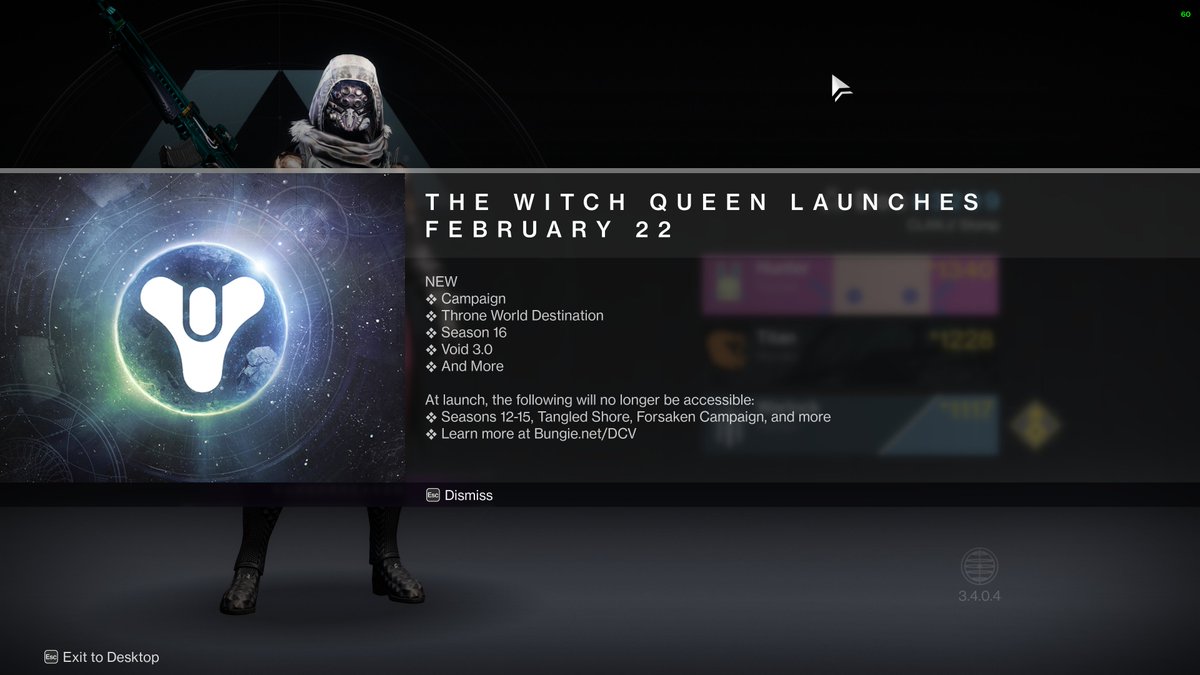I don’t like “events”. I don’t like it when things are limited with requirements of spacial presence and time. I don’t like experiences that only exist in one moment and then can never be relived. I don’t like ephemera. I prefer things. Toys I can play with, tools I can use, books I can read, movies I can watch, all at my own discretion. I have agency over my things. The actual lived experience from occurrence to occurrence is always different, of course, but the externalities can be repeated. I love being able to preserve the essence of a thing.
It’s one of the reasons I like computers. Or maybe it’s a psychological trait I developed because I had access to computers growing up. It probably is, I think. But either way, I love the purity of digital storage and interface. I love having an environment where experiences can be preserved and replayed at my discretion without my having to make any demands on other people.
And so that’s one of the reasons I love video games. Their mechanics are defined and can be understood and mastered. Their levels are defined and can be understood and mastered. Despite the extreme rates of “churn” — video games go out of print much faster than books or other physical media — the software is digital, and can be saved, stored, and replayed. I can look up the flash games I played as a kid and replay them, exactly as they were, and understand myself a little better for it.
Of course there are exceptions; it’s impossible to have a multiplayer game without an implicit demand that other people play with you. When an old game “dies”, it’s often not because the necessary hosting software is being intentionally withheld, but that there just isn’t a pool of people casually playing it like there used to be. That’s still a loss, and it’s sad, but that’s an unavoidable reality, and it’s not nearly as complete a loss as a one-off event being over.
So I don’t like when games force seasonal events on me. Limited-time events introduce something new, but they also necessitate the inevitable loss of that thing. And that assumes you were playing everything from the start; events introduce content that can be “missable” in a meaningful way, so if you’re weren’t playing the game at the right time, even if you own the game and finish everything you can access your experience can still be rendered incomplete. One of the things I like about games is that they’re safe, and the introduction of time-based loss compromises that safety.
That constant cycle of stress and pressure to enjoy things before they were lost is one of the main reasons I stopped playing Overwatch. I realized the seasonal events in particular weren’t good for me; they turned a game that should have been fun into an obligation that caused me anxiety.
But I’ve been thinking about this lately not because of Overwatch, but because Splatoon 3 is coming out soon. Splatoon isn’t nearly as bad as all that, I don’t think it’s deliberately predatory aside from Nintendo’s standard insistence on denying people autonomy. Splatoon 3 invokes that “people will stop playing Splatoon 2” loss, but even before that, Splatoon (a game I love) left a bad taste in my mouth because of its events.
Splatoon
Splatoon is full to the brim with time-based events, some better, some worse.
Splatoon 2 has two main game modes: Turf War and Ranked Battle. These modes have a pool of 23 stages, but only two stages are available for either at a time. For instance, at a given time, you might be able to play Turf War in a random draw between 1 and 2 or Ranked in a random draw between 3 and 4. These selections rotate every two hours.
Turf war’s mechanics are always the same (cover ground with ink), but Ranked matches have three game modes (each with separate rankings). Only one is available at a time, and that mode selection also rotates every two hours.
Splatoon 2’s other main mode, Salmon Run, has similar rotation mechanics: one stage is available out of a pool of five, and your weapon choices are limited to a random set that included exclusive weapons not available in the main game. Unlike the other modes though, Salmon Run isn’t always available: each stage/weapon bundle is available for a twelve-hour period every couple days. If you’re not playing when that happens to fall, you can’t play Salmon Run.
The main big “game event” in Splatoon 2, though, was the SplatFest. Once a month between 2017 and 2019, Splatoon 2 would hold a SplatFest over a weekend. Every player picked a team based on a theme question and competed against players on the other team. (For that weekend, these matches replaced the regular modes.)
At the end of the event, the wins were tallied and players on the winning team would get a special currency, the Super Sea Snail, as a reward. (Players on the losing team also got some snails as a consolation prize.) While some ways to win snails were patched in after splatfests ended, they were much harder to obtain. Also, if (like me) your account data was lost in the middle of the game’s online support, your snails were lost, as the only way to earn any was to wait for the next event.
During the splatfest the main hub area had night lighting and a lightshow, as well as extra banners and decorations. Stages during splatfests have also had this exclusive night lighting, as well as extra decorations and even fest-exclusive ink colors.

Personally, I’m fine with the stage rotation and even the salmon run system. There are only so many people playing the game at once, and exposing some options — but not every option — strikes a balance and lets people develop preferences without creating deserts of unpopular stages that never get played. It bothers me a little bit to have my options limited, but because Splatoon 2 is multiplayer, the only way to give myself the ability to play every mode would be to force other people to play with me, which is silly.
I don’t like the SplatFests, mechanically. They’re very fun, high-energy events. I loved them and I would set up my schedule around them and always have fun, but there was a distinct FOMO element to it. I almost felt like I wasn’t making optimal use of my time if I relaxed or even played something else during those weekends, because they were scarce. And of course, since they were events that required coordinating with other people, they had to be scarce in some ways. But Nintendo made things exclusive to those events that didn’t need to be, and not just the snails.
After the Splatfests ended, there should have been an option to enable the night-lighting versions of the stages. It’s entirely cosmetic, and could have been done on the client side: “I picked dark, so I see dark, even if you don’t.” (In fact, modders have done exactly that, but hyper-controlling Nintendo despises them for it.) The splatfest-exclusive stages should have been added into the pool of stages for rotation too. Instead, all of that is hidden under the neglected “Private Battle” mode, which requires people to manually coordinate matchmaking for all eight players. It’s ignored for good reason, and really only suitable for something like tournament play. Realistically, those special experiences are gone now.
 from violetvalhalla.tumblr.com
from violetvalhalla.tumblr.com
And it hurts for that experience to be gone, on a personal level, especially as someone who really loved it. Pearl and Marina did a little dance. That dance is gone now. People can’t be there for it. It’s a little, personal loss, and because everything “lost” was digital content in the first place, the loss is needless. All the models and effects and animations are part of software I own a copy of, but there’s still now way for me to experience them. I hate that.
Nintendo has this very hostile relationship with its users in general. They have a strong culture that they craft an experience and you engage with it like they imagine you should or you don’t at all. In 2017, western developer Jordan Amaro described Nintendo’s “Japanese” approach to design, actually describing Splatoon’s stage rotation system in particular:
In Japan, everything is tailored. You’ve probably heard Sheena Iyengar’s TED talk, in which she went to a restaurant in Japan and tried to order sugar in her green tea. The people at the cafe said, “One does not put sugar in green tea,” and then, “We don’t have sugar.” But when she ordered coffee instead, it did come with sugar! In Japan, there’s a sense of, “We’re making this thing for you, and this is how we think this thing is better enjoyed.” This is why, in Splatoon, the maps rotate every couple of hours. And the modes change. “I bought this game. Why can’t I just enjoy this game the way I want?” That’s not how we think here. Yes, you did buy the game. But we made this game. And we’re pretty confident about how this game should be enjoyed.
I despise this, of course. The actual reason for the design choice isn’t even considered here, all the customer ever gets told is “we made a design choice, eat up.” The word “tailoring”, too, is shockingly inappropriate: tailoring is an act of personalization and caring for the needs of an individual, but what’s described is an impersonal, one-size-fits-all frame imposed by handful of executives who demand all their customers fit within it.
No, the designer doesn’t get to be so confident that they understand me better than I understand myself that they get to restrain me because they imagine it’s for my benefit. That line of practice is arrogant, naive, and ultimately abusive. Nintendo isn’t your friend, and they certainly don’t get to be your nannying parent.
Overwatch
Overwatch had lots of bad mechanics (notably the super-predatory loot boxes), but personally I hated the seasonal events the most.
Overwatch seasonal events usually corresponded to holidays (Halloween, Winter, Lunar New Year, Olympic Summer Games) but also included things like Uprising, Retribution, the anniversary, and Archives.
Seasonal events would have exclusive gamemodes and levels that were only playable during the event. Once the event ended, that content was gone until whenever Blizzard decided to bring it back, if they ever did.
Seasonal events tied in directly with the loot box economy, adding an additional layer of FOMO. Each event had its own set of special event-specific items and cosmetics that only appeared in event loot boxes you can only purchase during those events. If you want one of the special event skins, you only have until the end of the event to buy loot boxes over and over again until you get it, and then you lose the ability to pay for even the possibility of getting the item until next year, if at all. Even the seasonal items that can be purchased with in-game money can only be purchased during their events!
in the words of sad sideways irvine shirt man Jeff Kaplan himself,
Developer Update | Seasonal Events We want these items to feel extra special and very rare so we don’t want everybody running around all the time in every single Summer Games item and we actually don’t expect that all players will get all summer games items. We want this to be a thing where six months from now when the Summer Games has long paths that you look back on somebody who’s in that cool you know Summer Games Zarya skin and go “oh man I can’t wait until next year when the Summer Games happens maybe I’ll be lucky enough to get that skin”
In other words, these items were made artificially scarce, deliberately, in order to drive up their value and emotional weight. That way, not only are you pressured into spending money, but you’re pressured to spend money on loot boxes now, before the event ends and you can’t even gamble at that machine anymore.
Overwatch isn’t freemium: it’s a full-priced retail game. That means, since you’ve already purchased something, there’s a pressure to “get your money’s worth” by playing (and getting emotionally invested) in seasonal events. This pressure is always expressed in things that directly financially benefit the companies designing it, like making additional purchases only available during the event, or just ensuring a well-populated userbase for matchmaking.
Only with a special end-of-game-life event did Blizzard host a way to go back and freely play old events… and it’s a seasonal event. Ick.
TF2
But you know what gets it perfect? Team Fortress 2’s Halloween events.
The Halloween updates add special Halloween event maps (usually variants of existing maps) to the casual matchmaking rotation. Each Halloween has its new maps, but also the full backlog of previous event maps is added as a matchmaking option. There’s also a “Halloween mode” flag set, that changes the models of pickups and enables some cosmetic items that can only be worn during Halloween or a full moon.

So why are TF2’s Halloween events so good? Because they can’t be locked away. TF2 is designed around community servers that can host any kind of gameplay they want; Valve is not given a monopoly on game hosting. When the game is updated with new maps, Steam downloads the maps for you. You have the map files and you have the server software. Any server can host any ap, and can enable Halloween mode by setting the tf_forced_holiday server variable.
There’s another kind of “event” in TF2, and that’s the Jungle Inferno Contract Tracker. The “Jungle Inferno Campaign” ran October 2017 - Feb 2018 (four months!). Players could purchase a campaign pass that unlocked a special contract system that gave out items for meeting achievement-like criteria. After the Campaign ended, the purchasable campaign ticket was replaced with a half-off ticket that unlocked the same contract system, but with some of the limited-time rewards (crates and badges) removed. The weapons are still earnable if you missed the event, and there’s no gameplay locked. And the stages added by the Jungle Inferno update are, like all stages, available forever.
At the end of the day, you’re safe in a way you aren’t in other games.
Highway robbery
Because I intentionally stay away from the sort of games that psychologically manipulate you with FOMO, I’m not personally familiar with the most egregious examples of this, but others have reported on it well in the past.
In a lot of ways, modern games are designed themselves more like events than games. People are expected to have a mindset that when they purchase a game, they’re buying something like a pass to a theme park that only lasts as long as the seller thinks it should. Companies never like selling real things, they’d always rather sell you a license that keeps them in control. Games are made ephemeral by being designed around a company as master and hardcoded to be clients that only look to developer services and stop working when those services end, rather than as the resilient property they could be.
As always I highly recommend Folding Ideas’ Manufactured Discontent and Fortnite from 2019, in which he deconstructs the psychological mechanics of the metagame, especially the monetization of FOMO. “Natural progression” in Fortnite is locked to ten-week seasons, and you have to purchase a battle pass every ten weeks to effectively participate in each. Each season happens once, and then it’s gone for good. The seasons resemble “events”, but Fortnite is designed so everything is a seasonal event in order to keep manufacturing new “events” you have to pay admission for.
I also saw this nasty little story about Destiny:
Mon Feb 14 20:54:01 +0000 2022i like bungie, lotta great people there, but this is so fucking bad. i gave you money for this and you're taking it away. i did not know you would be taking it away when i gave you money for it.
how is this not considered one of the all-time worst game things that's happened?
As of that announcement, if you want to have that gun, you have to sit down and force yourself to labor and play the game before they take away your chance to get it. The reason, again, was that by introducing artificial scarcity, they can keep people playing the game. If you want to play on those stages? You can’t. There’s no inventory for that, they’re just gone now. This isn’t grounded in reality, nothing “went bad”, the developers just decided to destroy something to keep the pressure up.
Having an architecture like this destroys the idea of Destiny as a comprehensive entity. This crosses the line from “our video game has seasonal events in it” all the way over to “this game is an event, and you get whatever we server you”. With that content gone, can you sit down and “play Destiny” now? When the nature of the game is this ephemeral, could you ever?
Wed Feb 16 01:02:52 +0000 2022fun fact, the screenshot for this article?
yeah that location isn't in the game anymore. it's been deleted. If you paid $60 for it back in 2017, you just... don't have it now. twitter.com/docsquiddy/sta…
Replying to docsquiddy:Wed Feb 16 02:38:48 +0000 2022i just checked
14 of the screenshots in that article of are locations or content that is no longer in the game (or permavaulted like my shotgun)
In fact, there are whole game disks out there where all of the content advertised isn’t available, because the GMs decided to stop hosting it. It’s effectively remotely bricking your purchase, and shamelessly.
In a system like this, there’s no way to own your own copy of the game you purchased; the game masters can come and repossess parts of the game at their discretion, and you have no recourse. It’s streaming with no equivalent of owning the physical media. This is my nightmare.
Conclusion
It’s good when games are open and give players agency. It’s bad when games are designed to depend on a magic service the developer has to host. It’s really bad when any part of a game effectively has a remote kill switch. That should probably be illegal.
I want to be able to capture and preserve experiences, and it makes me sad when I can’t. When there’s no good reason I shouldn’t be able to keep something safe and fun, but the designers force it on me, I get angry.
Splatoon is a mixed bag.
Events can be okay, but loss is bad, and systems should be designed so people can protect themselves from it. And if systems are rigged so loss is forced on people, that’s evil.
Related Reading
- Chris Suellentrop, “Nintendo Dev On Working With Kojima,’Splatoon 2,’ Rise of Japanese Games”
- Folding Ideas, “Manufactured Discontent and Fortnite”
- Michael McWhertor, “The death of Super Mario: Is Mario really dying on March 31?” - Polygon
Later news:


 gaming
gaming


